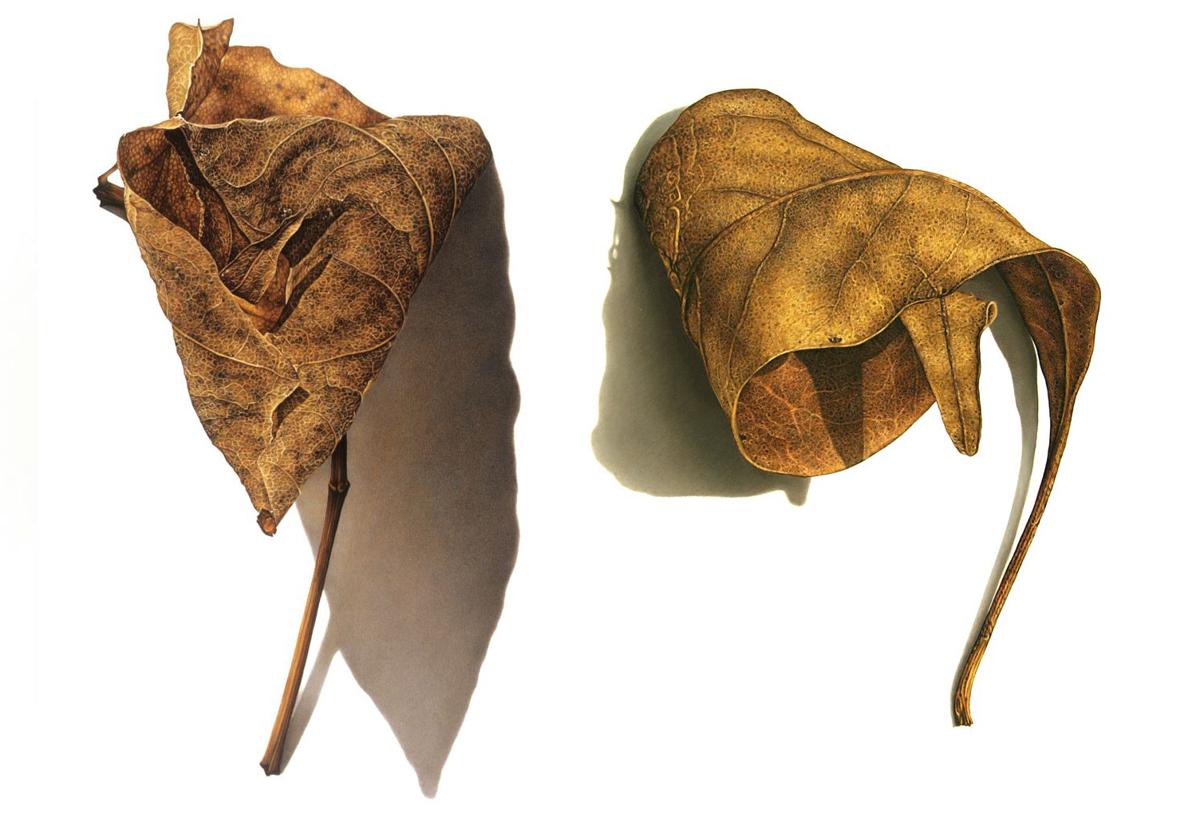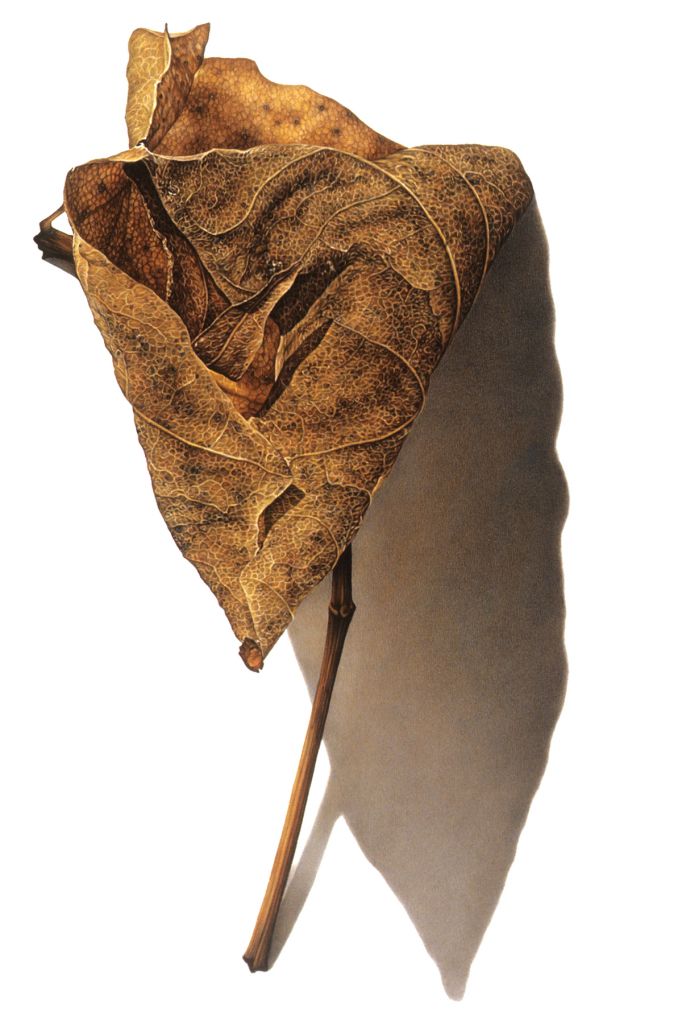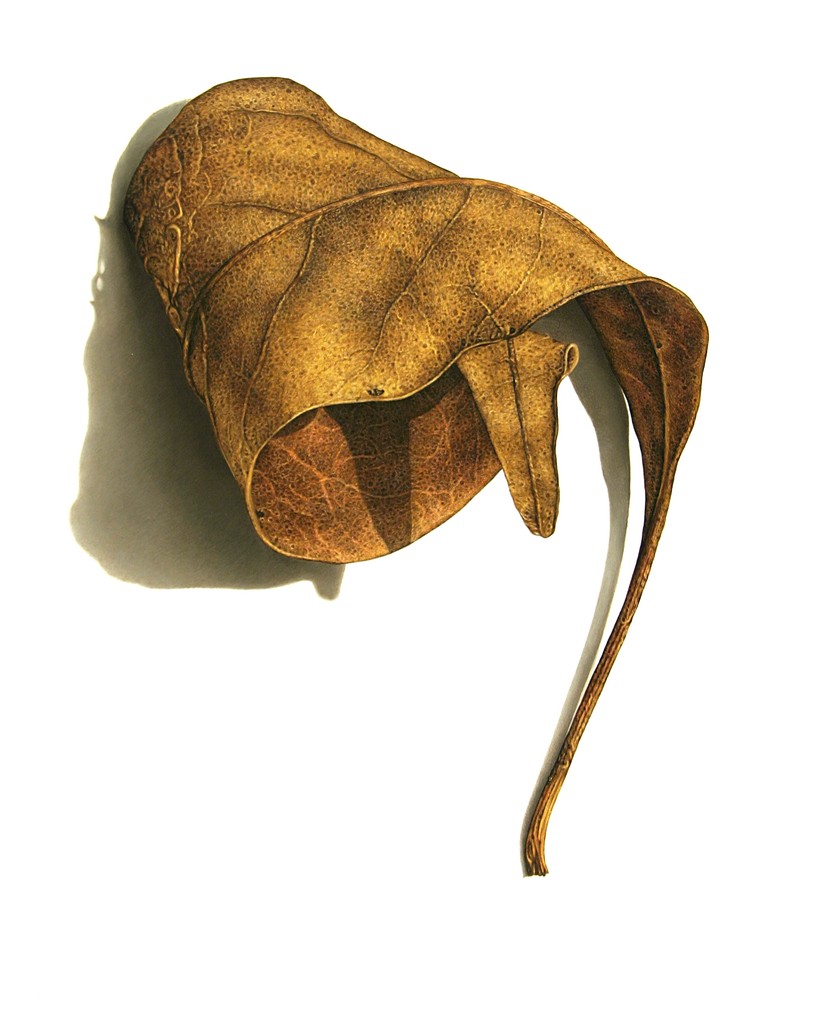March 8: We are Full of Darkness and Evil
♫ Music:
Friday, March 8
We are Full of Darkness and Evil
Scripture: Isaiah 64:5-6
Behold, you were angry, and we sinned; in our sins we have been a long time, and shall we be saved? We have all become like one who is unclean, and all our righteous deeds are like a polluted garment. We all fade like a leaf, and our iniquities, like the wind, take us away.
Poetry:
Gathering Leaves in Grade School
by Judith Harris
They were smooth ovals,
and some the shade of potatoes—
some had been moth-eaten
or spotted, the maples
were starched, and crackled
like campfire.
We put them under tracing paper
and rubbed our crayons
over them, X-raying
the spread of their bones
and black, veined catacombs.
We colored them green and brown
and orange, and
cut them out along the edges,
labeling them deciduous
or evergreen.
All day, in the stuffy air of the classroom,
with its cockeyed globe,
and nautical maps of ocean floors,
I watched those leaves
FIRST, THE BAD NEWS
“Behold, you were angry, and we sinned; in our sins we have been a long time, and shall we be saved? We have all become like one who is unclean, and all our righteous deeds are like a polluted garment. We all fade like a leaf, and our iniquities, like the wind, take us away.”
Perhaps you have heard the statement; “The gospel is bad news before it is good news.” It is bad news in light of the condemnation we incur because of our sin, resulting in eternal damnation and separation from God. It is good news in light of the death, burial, and resurrection of Jesus, who died in our place, satisfying God’s wrath and resulting in eternal life. But, first, we must understand and honestly face the bad news.
The cause of the bad news is found in our passage for today. Even though the prophet is holding onto some kind of hope, “and shall we be saved?”, he is owning the reality of our desperately bad situation. The bad news must be faced. It cannot and should not be ignored. It is the starting point if there is to be any hope.
We are sinners.
We are sinners and have been in our sin a long time.
We are sinners and have been in our sin a long time, becoming like one who is unclean.
We are sinners and have been in our sin a long time, becoming like one who is unclean, and even our righteous deeds are like polluted garments.|
We are sinners and have been in our sin a long time, becoming like one who is unclean, and even our righteous deeds are like polluted garments…and we all fade like a leaf, our iniquities carrying us away….
Our condition is so bad that even when we give it our very best effort, it can only be compared to a polluted garment, such that would cause us to exclaim, “Yuck, get that away from me.” And the consequences are so bad that it can only be compared to a dying leaf being blown by the wind.
When I walk through my backyard during this time of the year (which does not take too long here in Southern California), I can hear the crunching of the fallen leaves with each step. They are dead. They are lifeless. They are slowly being pulverized, disintegrating into nothing…no future, no hope.
And the prophet, Isaiah, uses this image to cause us to consider the end result of our own sinfulness. Our sin is pervasive, affecting even our best attempts to live righteously. It is total, and the result is final. Like those leaves, we are…
Dead.
Lifeless.
Slowly being pulverized.
Disintegrating into nothing.
No future.
No hope.
That is the bad news. Yet, even in the midst of embracing such a painful reality, like the prophet, we look up, and we whisper, “and shall we be saved?”
Prayer:
Lord, help me to see me as you see me, that in my sinful state even my best attempts at living the good life are ‘yucky’ to you. My best is bad, really bad. And help me to see that my path leads toward death like a dead leaf, fallen to the ground, to be trampled underfoot and blown away by the wind. Help me to own this condition of my soul apart from your wonderful mercy. Thank you that the gospel may begin with bad news but that it ends with good news…very good news! My hope rests in you. Help me to look up and whisper, ‘Save me!’
In Jesus’ name,
Amen.
Dr. David L Talley
Chair, Old Testament Department
Talbot School of Theology
Biola University
For more information about the artwork, music, and poetry selected for this day, we have provided resources under the “About” tab located next to the “Devotional” tab.
About the Artwork:
Rusted Leaf Series, 2006 (3 images)
David Morrison
Colored pencil on paper
19 1/8 x 15 1/4 inches
These highly realistic renderings of dying leaves are both beautiful and provocative. Artist David Morrison’s keen observation of each leaf captures the process of life and decay. Morrison says of his work, “Drawing nature, for me, is discovering the life of an item. The details of that life are portrayed where it shows its age, scars, and other damage marks made by insects or disease. I want to record this moment of existence. I want to show how incredible these objects are by capturing some of details through careful observation…Drawing was a way of examining every part of an object, how it was formed and how it was changed with time.“
About the Artist:
David Morrison (b. 1956) was born in Indianapolis, Indiana, and received his MFA in Printmaking from the University of Wisconsin-Madison in 1985. His colored pencil drawings are often nature-based, presenting simple subjects in almost microscopic detail. His work is included in numerous public collections including the Whitney Museum of American Art, the Corcoran Gallery of Art, the Smithsonian American Art Museum, the Nelson-Atkins Museum of Art, and the Portland Art Museum. A visiting lecturer and guest artist at numerous universities, Morrison is the Professor of Printmaking at Herron School of Art and Design in Indianapolis, Indiana.
About the Music:
“Nocturne in E Minor, Op. 72, No. 1” from the album The Chopin Variations
About the Composer:
Frédéric Francois Chopin (1810-1849), was a Polish composer and virtuoso pianist of the Romantic era. A child prodigy, Chopin completed his musical education and composed many of his works in Warsaw before leaving Poland at the age of 20. He settled in Paris for the remaining 18 years of his life, where he was in high demand as a composer and teacher. All of Chopin's compositions include the piano. Most are for solo piano, though he also wrote two piano concertos, a few chamber pieces, and some songs to Polish lyrics. His keyboard style is improvisational and often technically demanding; his performances were noted for their nuance and sensitivity. His innovations in musical form and harmony, his musical nationalism, his fraught relationships and tragically early death, all make him a leading symbol of the Romantic period. Though it was the first nocturne he ever wrote, Chopin was never satisfied with his Nocturne in E Minor, Op. 72, No. 1, and it was only published posthumously.
Arranger, multi-award winning pianist and composer Chad Lawson decided it was time to introduce Chopin to the Spotify generation. Along with violinist Judy Kang and Rubin Kodheli, the trio arranged Chopin classics into a modern-day platform. A jazz pianist, Lawson has an adept improvisational ear, which was key in Chopin’s own creative process. This modern arrangement highlights the other-worldly beauty of Chopin’s melodies against the ethereal backdrop of strings, while letting the listener in on the somewhat machine-like sounds of the piano - using a favorite technique of Lawson’s - weaving extra felt around the hammers and strings and placing the microphones incredibly close to pick up the inner creakings of the piano. These new sounds help heighten the sense of fragility and inevitability of Chopin’s original composition.
About the Performers:
Pianist Chad Lawson (b. 1965) born in North Carolina, knew he wanted to be a musician at the age of five and pursued this dream when he eventually enrolled at the Berklee College of Music in Boston. While in school, Chad began his career as a studio musician and after his studies at Berklee, toured with Babik Reinhardt (son of legendary jazz guitarist Django Reinhardt). Lawson has released seven critically acclaimed albums, worked with renowned musicians and producers, and has the distinguished honor of being a Steinway artist.
Judy Kang (b. 1979) is one of the most famous young violinists in the world today. Born in Canada to a single mother, she began playing the violin at four years of age in Edmonton, Alberta, and has since toured worldwide as soloist with a number of orchestras and ensembles. In addition to being the youngest graduate from the Curtis Institute of Music (age 17), she also has a master’s degree from Juilliard, and an Artist Diploma from the Manhattan School of Music. She was personally selected by Lady Gaga as the solo violinist on the "MonsterBall" world tour in 2010-11, the biggest selling debut tour in history. In addition to balancing her classical, pop, and electronic musical endeavors, Judy is artistic director for EnoB, a community-based nonprofit organization that reaches out to people who are disabled, hospitalized, or suffer from socio-economic disadvantages. She is also an artist ambassador for World Vision.
Composer and cellist Rubin Kodheli began his musical journey in Albania, where, as a child, he would stay up all night, fascinated by the celebratory performances of traditional Albanian folk music. He moved to Belgium to pursue formal studies at l'Académie d'Uccle, then to Germany to study at the Richard Strauss Konservatorium, and eventually graduated from The Juilliard School in New York City. The inspirational tapestry of his work is woven from blended threads of rock, jazz and classical influences, a stylistic trademark that has afforded Kodheli a highly diverse career, including compositions for film, genre-transcending rock symphonies, and collaborations as a performer with premier composers of our time, including Dave Douglas, Henry Threadgill, Meredith Monk, and Tom Harrell.
About the Poet:
Judith Harris (1955) was an American poet and the author of Night Garden, Atonement, The Bad Secret, and the critical book Signifying Pain: Constructing and Healing the Self Through Writing. Her poems have appeared in The Nation, Slate, Ploughshares, The New Republic, The Atlantic and Narrative Magazine, Southern Review, The American Scholar, Prairie Schooner, and her essays have been published in many journals, including Tikkun, College English, The Washingtonian, and The Chronicle of Associated Writing Programs. She was nominated for the Pushcart Prize and is a recipient of grants from Carnegie Mellon and the DC Commission on the Arts. She lives and teaches in Washington DC.
About the Devotional Writer:
Dr. David L Talley
Chair, Old Testament Department
Talbot School of Theology
Biola University
David Talley loves teaching the next generation of students the incredible and eternal truths of God in order to prepare them to impact the world for Jesus Christ. Outside of the classroom, he enjoys his family, exercising, cheering for the Alabama Crimson Tide, fishing, serving the church, and traveling internationally to help train the global church to complete the Great Commission.


